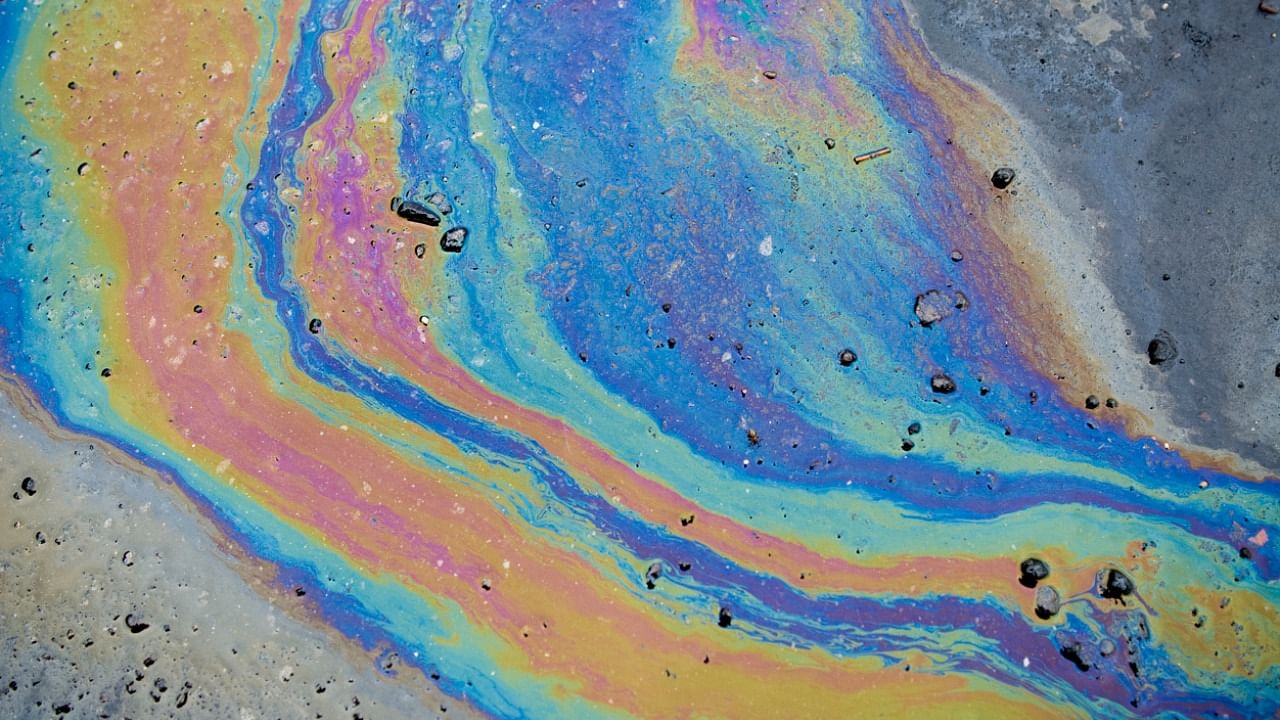
The Bhabha Atomic Research Centre (BARC), the premier nuclear research institute based in Mumbai, has developed a highly efficient super-hydrophobic (water disliking) and super-oleophilic (oil liking) cotton by radiation technology.
“There is no absorbent currently available that can remove floating oil from the water surface and sediment oil (underwater) simultaneously,” said Dr A K Mohanty, Director, BARC.
This biodegradable superabsorbent can be used multiple times — around 50 to 100.
In December 2020, an Indian patent was granted on this unique superabsorbent and the technology was transferred to a private company, according to a press statement issued on Friday.
He informed that the "superabsorbent cotton" has been developed by Dr Subhendu Ray Chowdhury, a scientist working in Isotope and Radiation Application Division, BARC and he has been conferred with National Award for Technology Innovation, 2019 by the Ministry of Chemicals and Fertilizers, Government of India for this innovation.
The material was developed by bio-inspired molecular-scale surface engineering through tuning of surface roughness (topography) and surface energy with the help of radiation-assisted covalent integration. Typically, one gram of the material can pick up a minimum of 1.5 kg of oil from water media which can be recollected by simple squeezing or compression from the superabsorbent cotton.
The cotton can be used for the removal of toxic organic liquids such as Benzene, Toluene, Ethylbenzene, Chloroform, Dichloromethane, Tributyl Phosphate (TBP), Triphenyl Phosphate (TPP), etc. from industrial or municipal wastewater.
In addition to this, superabsorbent cotton can also be used for the separation of various oily solvents in industry/laboratory setups and cleaning of solid surfaces in oil stations, spillage on road, etc.
The cotton retains its property and performance in acidic, alkaline, sea environment and even at high temperature. After multiple usages, the cotton can be disposed of without any hassles as it is biodegradable.
Conventional oil removal techniques generate secondary pollution and lose the oil either due to burning or consumed by microorganisms. However, the current technique is cost-effective, recovers the oil and adds value to the environment as well as the economy.
The process to produce superabsorbent cotton in large quantities has been developed and scaled up. Due to design flexibility and weather resistance, this material can be packed and stored as per requirement. Thus, in the 'Swachh Bharat Abhiyan' of the Government of India, it is a contribution of BARC, Dr P K Pujari, Director, Radiochemistry & Isotope Group, BARC said.